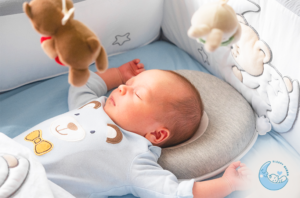You turn 40. You’ve still had no offspring. You’ve either waited too long, or you’re tired of trying to conceive naturally. Soon, you find yourself amidst several uncertainties, waiting in long queues at female/male fertility clinics. Then you pray & hope that the male/female infertility treatment works in your favour. And so goes the story.
Infertility knows no gender. Inevitably, both men & women fall prey to the dredges of time. The older you are, the harder it gets to conceive naturally.
While it is common knowledge that women stop producing healthy eggs after a certain age, men also tread upon on a biological clock that affects their fertility. So much so, that certain countries do not permit men over age 45 to donate sperms.
80 % percent of the time, the issue lies on either side of the equation, but 20% percent of the time, it is likely that both partners may be infertile/sterile.
While a natural conception is a remote possibility for an older couple, stats indicate that the couple’s chances of conceiving with male/female infertility treatment or IVF also reduces with age. Therefore, the longer you wait, the more the complications.
What Do the Experts Tell Us?
When we hit our thirties, the chances of conceiving drop down to 20%. At 40, we are left with a 5% chance of natural conception. Only fewer than 5 out of 100 women are expected to successfully conceive at that age.
Naturally, this is where IVF & Female/Male infertility treatment comes into play. But according to the American Society for Reproductive Medicine, women above the age of 43 who have undergone IVF still stand a chance of only 5 % at pregnancy. That’s only as good as trying to conceive naturally!
Male infertility also occurs due to various factors, all essentially to do with the sperm function. The
quality of sperms is deterred due to low sperm concentration (oligospermia), poor sperm motility (asthenospermia), and abnormal sperm morphology (teratospermia).
What Are the Risks Involved?
Poor sperm/eggs can lead to several complications. For instance, the egg has 46 chromosomes, but it must reduce to 23 to match up with the 23 new chromosomes that the sperm brings. As a woman ages, when her egg nucleus divides, the chromosomes are distributed unequally. And this may lead to genetic abnormalities or abnormal embryos that are likely to result in loss of pregnancy.
Similarly, for aging men, their sperms come with the risk of DNA fragmentation. Damaged DNA may cause miscarriage, birth defects & chromosomal abnormalities. A California based study observed 70,000 couples, of which men above 50 years of age were more likely to have a child with Down’s syndrome. Daunting isn’t it?
If you & your spouse are above thirty and are still trying to conceive, visit the Manipal Fertility Clinic today. The AMH Test is most common for assessing female fertility, and men can undergo a Semen analysis to assess the quality of their sperm. Every minute delayed is a chance you’re giving away.

















